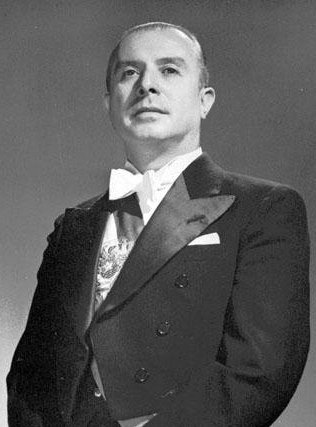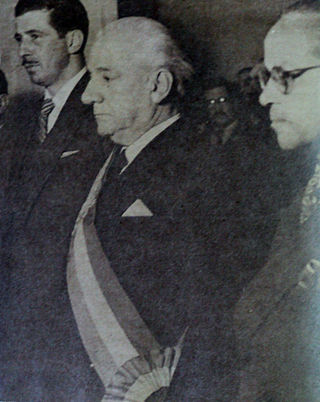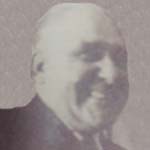This article needs additional citations for verification .(February 2024) |
| |||||
| Decades: | |||||
|---|---|---|---|---|---|
| See also: | |||||
The following lists events that happened during 1946 in Chile.
This article needs additional citations for verification .(February 2024) |
| |||||
| Decades: | |||||
|---|---|---|---|---|---|
| See also: | |||||
The following lists events that happened during 1946 in Chile.

Juan Antonio Ríos Morales was a Chilean political figure who served as president of Chile from 1942 to 1946, during the height of World War II. He died in office.

Gabriel Enrique González Videla was a Chilean politician and lawyer who served as the 24th president of Chile from 1946 to 1952. He had previously been a member of the Chamber of Deputies from 1930 to 1941 and senator for Tarapacá and Antofagasta from 1945 to 1946. A long-time member and leader in the Radical Party, he left the party in 1971 over its support for socialist president Salvador Allende. From 1973 until his death in 1980 he became an active collaborator and participant in the dictatorship of Augusto Pinochet, acting as vice president of the Council of State from 1976 onwards. As vice president of the council, he helped draft the current Chilean constitution of 1980.

Presidential elections were held in Chile on February 1, 1942. The result was a victory for Juan Antonio Ríos of the Radical Party, who received 56% of the vote.
Presidential elections were held in Chile on 4 September 1946. The result was a victory for Gabriel González Videla of the Radical Party, who received 40% of the popular vote and 75% of the Congressional vote.

Juan Antonio Iribarren Cabezas was a Chilean politician. He was president of Chile from 17 October to 3 November 1946.

Alfredo Duhalde Vásquez was a Chilean politician who served twice as provisional president in 1946.

The Conservative Party of Chile was one of the principal Chilean political parties since its foundation in 1836 until 1948, when it broke apart. In 1953 it reformed as the United Conservative Party and in 1966 joined with the Liberal Party to form the National Party. The Conservative Party was a right-wing party, originally created to be the clericalist, pro-Catholic Church group.

The Radical Party was a Chilean political party. It was formed in 1863 in Copiapó by a split in the Liberal Party. Not coincidentally, it was formed shortly after the organization of the Grand Lodge of Chile, and has maintained a close relationship with Chilean Freemasonry throughout its life. As such, it represented the anticlericalist position in Chilean politics, and was instrumental in producing the "theological reforms" in Chilean law in the early 1880s. These laws removed the cemeteries from the control of the Roman Catholic Church, established a civil registry of births and death in place of the previous recordkeeping of the church, and established a civil law of matrimony, which removed the determination of validity of marriages from the church. Prior to these laws, it was impossible for non-Catholics to contract marriage in Chile, and meant that any children they produced were illegitimate. Non-Catholics had also been barred from burial in Catholic cemeteries, which were virtually the only cemeteries in the country; instead, non-Catholics were buried in the beaches, and even on the Santa Lucia Hill in Santiago, which, in the 19th century, functioned as Santiago's dump.
The National Prize for Arts and Sciences is awarded annually by the Government of Mexico in six categories. It is part of the Mexican Honours System and was established in 1945. The prize is a gold medal and 520,000 pesos.

The Roman Catholic Archdiocese of Santa Cruz de la Sierra is an ecclesiastical territory or diocese of the Roman Catholic Church in Bolivia. It was erected as the Diocese of Santa Cruz de la Sierra by Pope Paul V on July 5, 1605, and was elevated to the rank of a metropolitan archdiocese by Pope Paul VI on July 30, 1975, with the suffragan see of San Ignacio de Velasco.

The Presidential Republic is the period in the history of Chile spanning from the approval of the 1925 Constitution on 18 September 1925, under the government of Arturo Alessandri Palma, to the overthrow of the Popular Unity government headed by the President Salvador Allende on 11 September 1973. The period is concurrent with the "Inward Development" period in Chilean economic history.

The Radical Governments of Chile were in power during the Presidential Republic from 1938 to 1952.

The following is an alphabetical list of articles related to the Republic of Chile.

Ciruelos is a Chilean village located southeast of Pichilemu, Cardenal Caro Province. In 1899, it had very few inhabitants, a free school, and a post office.

Jaime Alfonso Quintana better known as Alfonso Quintana was a Chilean lawyer, politician and diplomat.
The Grand Lodge of Chile is a regular Masonic body in Chile founded on May 24, 1862. The earthquake of 1906 destroyed the original headquarters and the archives of the Grand Lodge, which determined its definitive transfer to Santiago, settling in the Club de la República.
The following lists events that happened during 1898 in Chile.
El vuelo del águila is a Mexican telenovela produced by Ernesto Alonso and Carlos Sotomayor for Televisa in 1994–1995. Telenovela based on the Mexican soldier and President of Mexico Porfirio Díaz, from his name had come out the title "Época Porfiriana" or "Porfiriato" during the period of his rule, in the years 1876–1911.